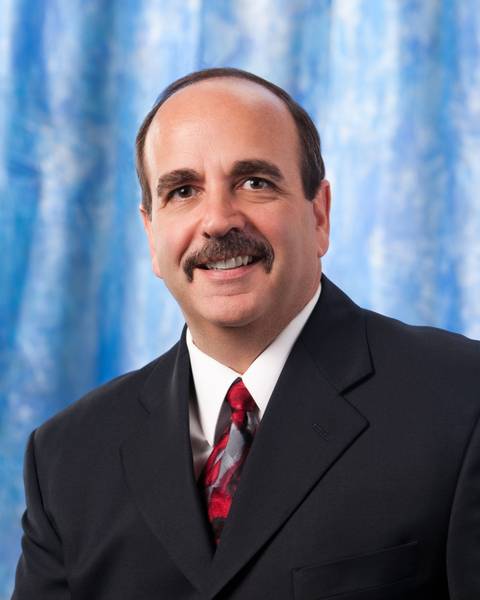Despite an ongoing tight national job market, casinos nationwide are hiring.
“There certainly is a demand for qualified individuals to join our company, and I’m sure that’s the case for other companies in the market based on the volumes we’ve seen over the last few years,” said Tom McCartney, chief operating officer of the Cosmopolitan. “There frequently is a demand for individuals who can provide selling skills, whether it’s on the hotel side or the gaming side.”
Regional casinos also are hiring, but the most sought-after jobs are in corporate strategy, and most of those are in Las Vegas.
With casino operations requiring specialized expertise, it’s not surprising that the industry often hires from within. Companies typically hire headhunters with thousands of gaming managers in their databases to try to match candidates with job opportunities.
One of those headhunters is Marc Weiswasser. He heads CasinoRecruiter.com, a Las Vegas company affiliated with the Navegante Group casino management company.
Weiswasser recently spoke with VEGAS INC about employment prospects in the industry:
How did the recession affect you?
Since our inception in 1999 until the recession, we’d do about 30 to 35 placements per year at the director level and above. In the recession, that fell to about 20 placements per year. Now, we’re about 25 percent above last year.
If the economy can stay on track, I think the first quarter of 2013 will set the bar for what’s going to happen here on out and the industry can be on the right track.
How hard were management-level employees hurt in the recession?
We had all these great candidates on the sideline. It was tough to see a general manager saying, “I’ll take a director-level position or even a manager-level position because I want to get back to work or need to get back to work.” Some just left the industry.
Was the unemployment caused by layoffs or companies shelving plans for growth?
It was layoffs across the board. As their revenue went down, they had to find ways to have cost savings. It’s unfortunate, but the No. 1 way to cut costs is staff. A lot of the big players did that.
There was a trickle-down effect to the standalone properties or the Native American properties that were cutting staff as well.
Titles are semantics. A vice president could be a director or could be a manager at a particular property. So when they did this reduction in force, you saw the highly-paid and very-valuable vice president renamed as an executive director or a director. Some of the multi-property companies would have one person overseeing two or three properties at the same price as they were doing it before.
Customer service levels went down horribly because of the staffing cuts and cost savings.
Executives for the most part jump from gaming company to gaming company. Why does it seem like a revolving door?
Our clients want someone with that (gaming) experience already.
The bulk of our clients over the years have been outside of Las Vegas because Las Vegas is a very close-knit type of a community. When a position opens up, virtually everyone in town knows about it. They don’t have a need to come to us.
When they definitely would come to us is with a confidential search and they’re looking to replace an incumbent for whatever reason.
How do confidentiality and non-compete agreements affect what you do?
For some departments, like facilities, human resources or food and beverage, it may not be an issue whatsoever. Where the big issues come in is typically in marketing with the casino hosts or the finance department, where there’s confidential information. The marketing host having access to big players can be extremely detrimental to the company they’re leaving.
You can’t get out of a confidentiality agreement. It is what it is: you promised not to share secrets. Probably 99.9 percent of the executives adhere to that because everyone has their integrity, which is very important.
With non-competes, it’s usually in a radius. Say it covers 100 miles of Las Vegas. That means you can’t work (for a period of time) in Las Vegas, Laughlin or Mesquite. You’ve got to go somewhere else.
It used to be one year or two years. Now, we’re seeing three years.
Does gaming attract the best and brightest talent? Some perceive it as a sin industry and not as respectable as, say, banking, real estate or technology.
As you’ve seen in the last few years by all these states opening up their jurisdictions to gaming, it’s getting more respectability because of the recession.
If the recession hadn’t come along with all these municipalities needing the income, it would have still been considered a sin in places like Massachusetts or Pennsylvania. Because they need the revenue, they’re saying, “OK, it’s respectable.”
Actually, it is as respectable as other industries. Caesars Entertainment with its CEO Gary Loveman makes it a point to go after MBAs. They may have no desire to go into gaming, but he makes it very attractive by putting them on an executive management track. MBAs in the industry is a new phenomenon.
In the old days, that was unheard of. You learned on the street, and virtually no one had a degree.
Even so, you can have your MBA and all that education, but it’s still a people business. You’ve got to have a customer service mentality. If you look at it just from the bottom line, you’re in the wrong business.
